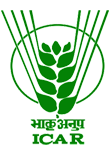03-03-2025
Nurturing Diversity, Resilience, Livelihood & Industrial Inputs


Designation: प्रधान वैज्ञानिक (पादप कार्यिकी)
Qualification: Ph.D. in Plant Physiology from CCS Haryana Agricultural University, Post-doc from Japan International Centre for Agricultural Sciences, Okinawa Subtropical Station, Japan
Address: ICAR-Indian Institute of Maize Research Pusa Campus, New Delhi 110012(INDIA)
Email: ishwar.singh@icar.gov.in, isingh.dmr@gmail.com
Mobile: +91 996449332
Phone: +91 011 25841805 (O)
Work experience
Area of interest
Brassinosteroids and abiotic stresses (drought, temperature and nutrient stress) tolerance in crops
Most significant achievements (in last five years):
Publications in last five years
Professional recognition